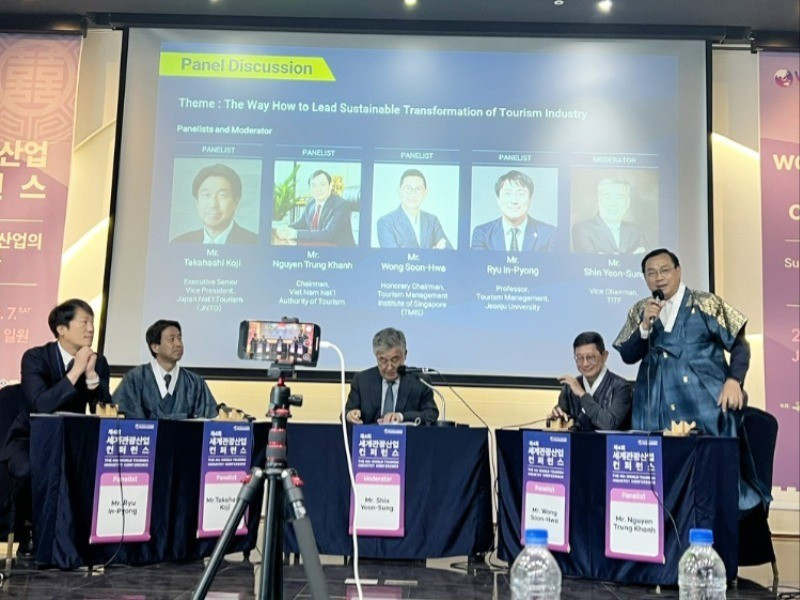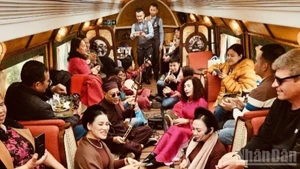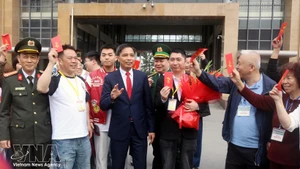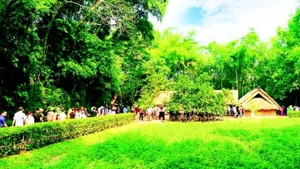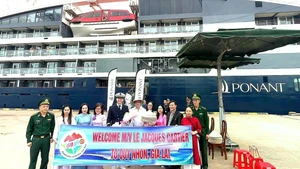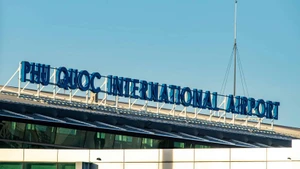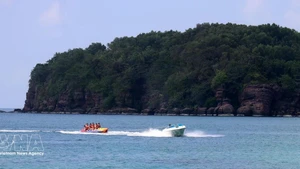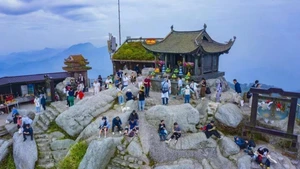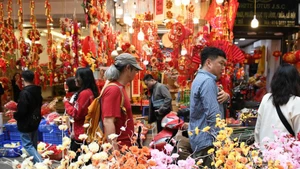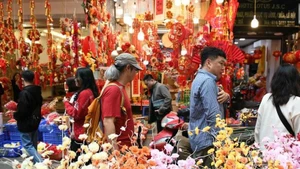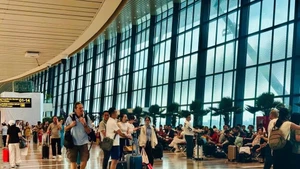Sharing insights on Viet Nam’s sustainable tourism transition, Director General Nguyen Trung Khanh stated that the country has taken methodical steps, from national-level strategic planning to the implementation of specific models at local and business levels, with green development positioned as a central pillar for the tourism sector in the coming decades.
At the national level, the Ministry of Culture, Sports and Tourism, along with VNAT, has formulated strategies and action plans to guide the sustainable transformation process. The government has issued the tourism system planning for the 2021–2030 period, with a vision to 2045, clearly identifying green, sustainable tourism development as a key objective, closely aligned with environmental protection and the promotion of national cultural values.
At the local level, tourism authorities have launched a range of campaigns aimed at protecting the tourism environment. Notable green tourism initiatives in Viet Nam include Hoi An’s “Plastic-Free City” project, Ha Long Bay’s “No Single-Use Plastic” campaign, Da Lat’s “Green and Sustainable Tourism” model, and Ninh Binh’s “Reducing Plastic Waste in Tourism” project, with support from the United Nations Development Programme (UNDP).
Alongside government agencies, tourism enterprises in Viet Nam have made significant strides in promoting green tourism. Many businesses have incorporated sustainability into their products and services. Ecotourism, net-zero tours, nature-based retreats, local cultural experiences, and organic farming tourism are becoming increasingly popular.
To raise awareness of sustainable tourism among travellers and local communities, Viet Nam has stepped up communications from the central to local level in recent years, with active participation from numerous tourism-related agencies, organisations, and businesses.
Campaigns such as “Viet Nam: Go for Love!” on YouTube and social media platforms have helped position the country as a safe, green, and welcoming destination.
Particularly noteworthy are initiatives such as “A Day of Net Zero Tourism in Hue”, Green Tourism in Ha Long, the “Swiss Tourism for Sustainable Development in Viet Nam” (ST4SD) project, and the “Gender Responsive Equitable Agriculture and Tourism” (GREAT) project — which is implemented from 2017 to 2027 in partnership with the Australian Government. These initiatives are contributing to the growing momentum for sustainable development across the tourism sector.
The 4th Global Tourism Industry Conference, held in the Republic of Korea, aimed to explore opportunities, challenges, and solutions in transitioning the tourism industry towards sustainability. It also provided a platform for countries and organisations to exchange policies, strategies, and successful models.
Key topics discussed at the conference included heritage conservation, environmental protection, community support, circular economy development, responsible consumption, and evolving tourist behaviours in alignment with sustainability.
The conference was held alongside the 40th Seoul International Travel Fair (SITF 2025) — one of the largest tourism expos in the Republic of Korea — attracting approximately 400 delegates from various countries.
